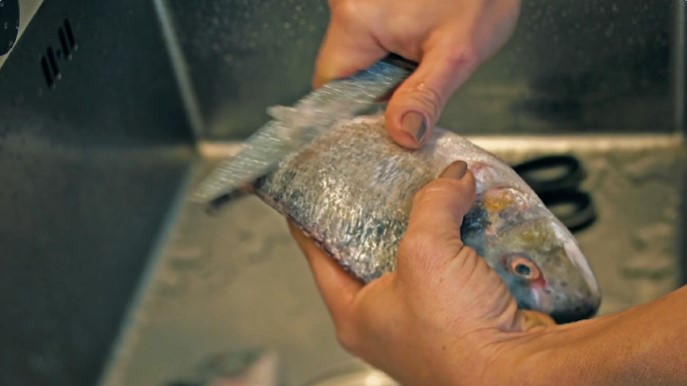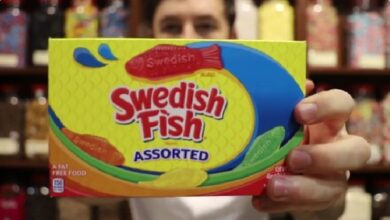Is Fish Halal
The question of whether fish is halal is significant for many Muslims who adhere to dietary laws prescribed by Islamic teachings. These laws help ensure that the food consumed is permissible (halal) and pure, aligning with religious guidelines.
Introduction
Navigating dietary laws in Islam can sometimes be complex, especially when it comes to seafood. Fish, a popular food item globally, has diverse species and preparation methods, leading many to question its halal status. Understanding the criteria for halal food is crucial for Muslims who seek to maintain a diet that complies with Islamic principles. This comprehensive guide delves into whether fish is halal food, exploring different schools of thought, types of fish, and practical tips for ensuring compliance with halal dietary laws. By the end of this article, you’ll have a clear understanding of the halal status of fish and how it fits into a Muslim diet.
Islamic Perspective on Seafood
Islamic dietary laws, based on the Quran and Hadith, provide guidelines on what is permissible (halal) and forbidden (haram). Fish and other seafood generally fall under the permissible category, but there are nuances depending on the type of seafood and the school of thought.

Quranic Guidance
The Quran explicitly permits the consumption of seafood. Surah Al-Ma’idah (5:96) states: “Lawful to you is what you catch from the sea and use for food as provision for yourselves and for the travelers.” This verse indicates that seafood, in general, is considered halal and can be consumed without specific restrictions.
Hadith on Seafood
In addition to the Quran, Hadiths provide further clarification. The Prophet Muhammad (peace be upon him) said, “Its water is pure and its dead are lawful” when referring to the sea (Sunan Ibn Majah). This Hadith reinforces the idea that fish and other sea creatures are halal, even if they die naturally in the water.
Different Schools of Thought
Islam has various schools of thought (Madhahib), each with its interpretations and rulings on dietary laws. The Hanafi, Shafi’i, Maliki, and Hanbali schools have specific views on what types of fish and seafood are considered halal.
Hanafi School
The Hanafi school of thought is more restrictive, generally allowing only fish with scales. This means that shellfish, such as shrimp, crab, and lobster, are considered haram (forbidden). According to Hanafi scholars, only fish that fall within the traditional definition of “fish” are permissible, excluding creatures like eels and catfish that lack scales.
Shafi’i, Maliki, and Hanbali Schools
These schools are more lenient and permit the consumption of all types of fish and seafood, including shellfish. They base their rulings on the broader interpretation of Quranic verses and Hadiths that do not specify restrictions on the type of sea creatures that can be consumed.
Commonly Accepted Halal Fish
Several types of fish are universally recognized as halal across different Islamic schools of thought. These include:
- Salmon: Known for its rich flavor and nutritional benefits.
- Tuna: A versatile fish popular in many cuisines.
- Mackerel: High in omega-3 fatty acids and commonly consumed grilled or smoked.
- Sardines: Nutritious and often eaten whole.
- Trout: Both freshwater and saltwater varieties are considered halal.
Non-Halal Sea Creatures
While many sea creatures are halal, some are generally considered haram due to their nature or habitat. These include:
- Predatory fish: Such as sharks, which have fangs and are carnivorous.
- Marine mammals: Such as dolphins and whales.
- Certain mollusks: Like squid and octopus, debated among scholars.
Practical Tips for Ensuring Halal Compliance
To maintain a halal diet, consider the following tips:
- Verify Source: Ensure the seafood is sourced from halal-certified suppliers.
- Check Labels: Look for halal certification on packaged seafood.
- Consult Scholars: Seek guidance from knowledgeable religious authorities, especially if you follow a specific school of thought.
Frequently Asked Questions
What is Halal food?
Halal food is any food that complies with Islamic law, as defined in the Quran. The criteria specify both what types of food are permissible and how the food must be prepared. Halal foods cannot contain or come into contact with forbidden substances such as pork or alcohol.
Is all cheese Halal?
Not all cheese is Halal. The production of cheese often involves the use of enzymes like rennet, which can be derived from animal sources. If the rennet comes from animals not slaughtered according to Islamic law, the cheese is not Halal. Always check for Halal certification or inquire about the source of the rennet used.
Can we eat gelatin?
Gelatin is typically derived from the bones and skins of animals, including pigs, cattle, and fish. If the gelatin comes from pigs or non-Halal slaughtered cattle, it is not Halal. Halal-certified gelatin is available, usually sourced from Halal-slaughtered cattle or fish skins.
Is vanilla flavoring Halal?
Vanilla flavoring is usually extracted using alcohol, making it non-Halal in most cases. However, powdered forms of vanilla or vanilla flavoring that do not involve alcohol are considered Halal. Always check product labels and, if in doubt, contact the manufacturer.
Is chocolate liquor Haram?
Despite its name, chocolate liquor does not contain alcohol. It is a syrupy liquid made from ground cocoa beans and is used in making chocolate-flavored products. Therefore, it is considered Halal.
Is the food in fast food restaurants Halal?
The Halal status of food in fast food restaurants depends on the meat and the preparation methods. If the meat is not Halal-certified or the preparation involves cross-contamination with non-Halal items, it is not Halal. Always look for Halal certification or ask about the sourcing and preparation practices.
Is Pepsi-Cola Halal?
Pepsi-Cola does not contain any animal-derived enzymes or pepsin. It is considered Halal as it does not contain any ingredients that are forbidden in Islamic dietary laws.
Is saccharine Halal?
Saccharine is a synthetic sweetener and is Halal. However, there have been health concerns about its use, as it has been found to cause cancer in laboratory animals. It is permitted in foods as a non-calorie sweetener.
What about Halal certification costs for businesses?
The cost of Halal certification varies but is generally minimal compared to the overall production costs. For example, a dairy company might pay around $1,000 per year, which has little impact on the final product price. Certification can also open up new markets and increase sales.
Does Halal certification change the way companies make their products?
No, Halal certification typically does not change the way products are made. It ensures that the ingredients and the production process comply with Halal standards, but the core production methods and quality remain unchanged.
Are non-edible products Halal-certified?
Yes, non-edible products like pharmaceuticals and toiletries can also be Halal-certified, especially if they contain ingredients that could be derived from animal sources, such as gelatine.
Is it true that Halal certification fees fund terrorism?
There is no evidence linking legitimate Halal certification fees to terrorism financing. The fees are used to cover business expenses such as utilities, salaries, and taxes.
Can alcohol be used in food flavoring?
Any form of alcohol is considered Haram (forbidden) in Islam. Foods containing alcohol, even in small amounts for flavoring, are not Halal. It is best to avoid such products unless they are certified Halal and confirm the absence of alcohol.
Are there Halal-certified fast food chains?
As of now, there are no widely known fast food chains with Halal certification for all their outlets. However, some locations might offer Halal options, and it’s important to verify with each restaurant.
Is vanilla ice cream Halal?
Vanilla ice cream can be Halal if it does not contain alcohol-based vanilla extract. Check for Halal certification or inquire about the source of the vanilla flavoring used.
Why is Halal food important?
Halal food is important for Muslims as it adheres to Islamic dietary laws. Consuming Halal food is a way for Muslims to fulfill their religious obligations and maintain dietary purity.
Conclusion
In conclusion, fish is generally considered halal in Islam, with most seafood permissible across various schools of thought. However, the Hanafi school imposes more restrictions, primarily allowing only fish with scales. Understanding these nuances and consulting knowledgeable scholars can help Muslims make informed dietary choices, ensuring they adhere to halal guidelines while enjoying the diverse flavors of seafood.
Read also: Is Alligator Halal





